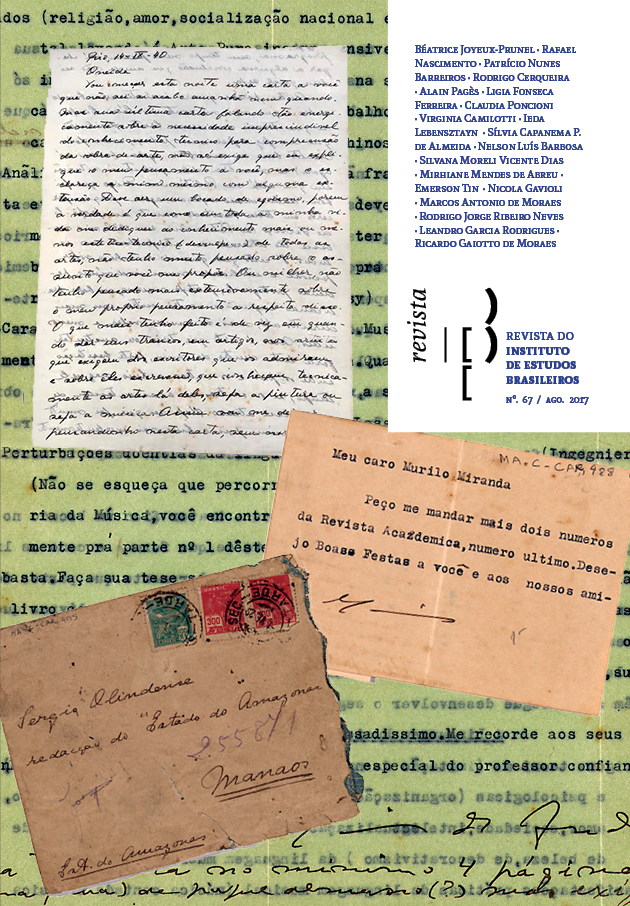Catete in D minor: musical tensions in the First Republic
DOI:
https://doi.org/10.11606/issn.2316-901X.v0i67p38-56Keywords:
Brazilian popular music, Chiquinha Gonzaga, First Republic, gender and sexualityAbstract
This article deals with the entanglements between culture and politics in the first decades of Brazil’s First Republic taking the disputes surrounding the category “popular music” as a privileged element of socio-anthropological analysis. Starting from a very well-known episode among historians of music – the “Noite do Corta-jaca”, occurred in October 26th, 1914 – and its repercussion in local press, I wish to comprehend in which ways notions as “erudite” and “popular” (or even “high” and “low” culture) were created by an intelligentsia willing to validate the new political regime before its population.Downloads
Download data is not yet available.
Downloads
Published
2017-08-31
Issue
Section
Articles
License
- Todo o conteúdo do periódico, exceto onde está identificado, está licenciado sob uma Licença Creative Commons do tipo atribuição CC-BY.
How to Cite
Nascimento, R. (2017). Catete in D minor: musical tensions in the First Republic. Revista Do Instituto De Estudos Brasileiros, 67, 38-56. https://doi.org/10.11606/issn.2316-901X.v0i67p38-56



